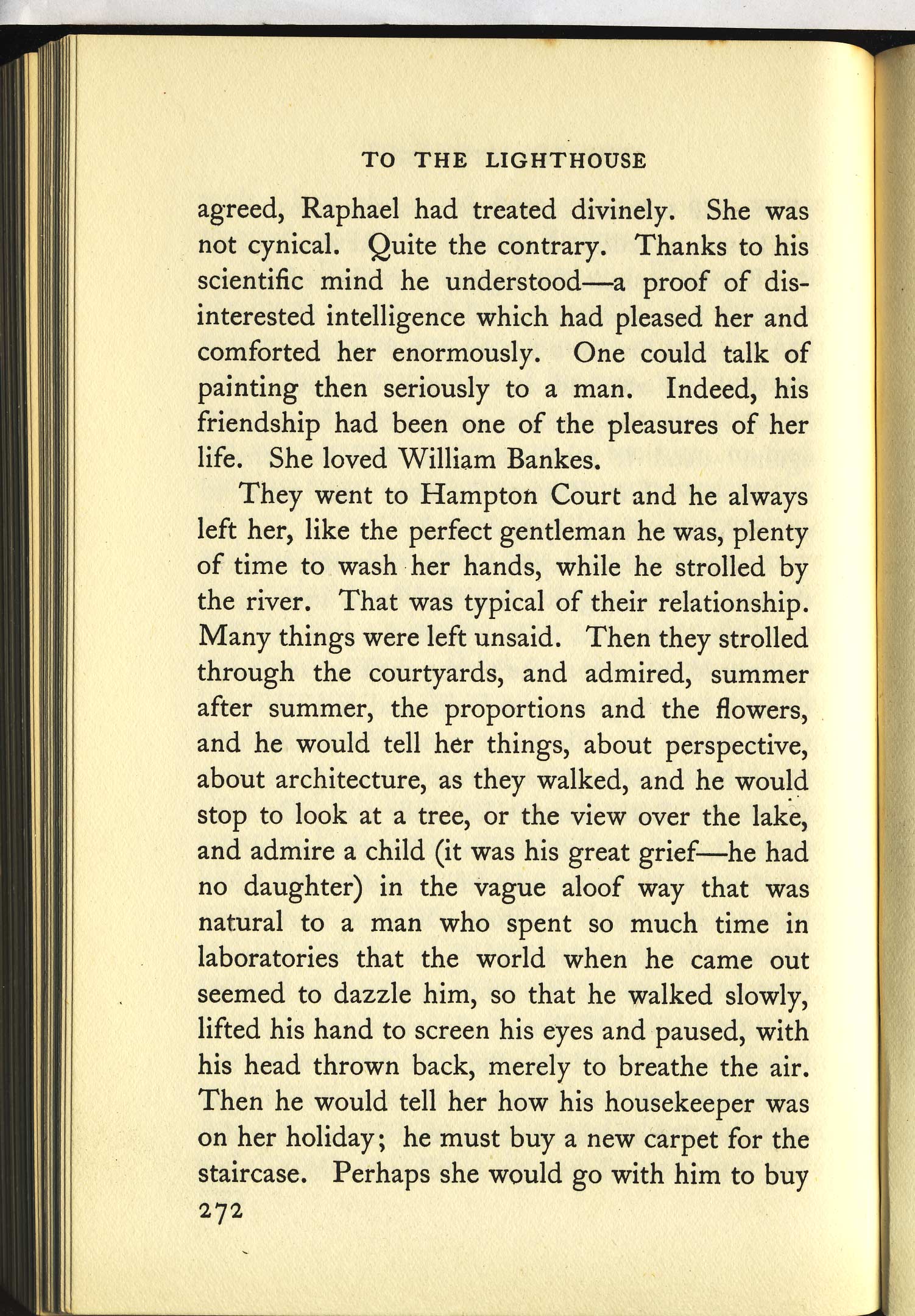
To THE LIGHTHOUSEagreed, Raphael had treated divinely. She wasnot cynical. Quite the contrary. Thanks to hisscientific mind he understood—a proof of disinterested intelligence which had pleased her andcomforted her enormously. One could talk ofpainting then seriously to a man. Indeed, hisfriendship had been one of the pleasures of herlife. She loved William Bankes.
They went to Hampton Court and he alwaysleft her, like the perfect gentleman he was, plentyof time to washrher hands, while he strolled bythe river. That was typical of their relationship.Many things were left unsaid. Then they strolledthrough the courtyards, and admired, summerafter summer, the proportions and the flowers,and he would tell her things, about perspective,about architecture, as they walked, and he wouldstop to look at a tree, or the view over the lake,and admire a child (it was his great grief—he hadno daughter) in the vague aloof way that wasnatural to a man who spent so much time inlaboratories that the world when he came outseemed to dazzle him, so that he walked slowly,lifted his hand to screen his eyes and paused, withhis head thrown back, merely to breathe the air.Then he would tell her how his housekeeper wason her holiday; he must buy a new carpet for thestaircase. Perhaps she would go with him to buy272









